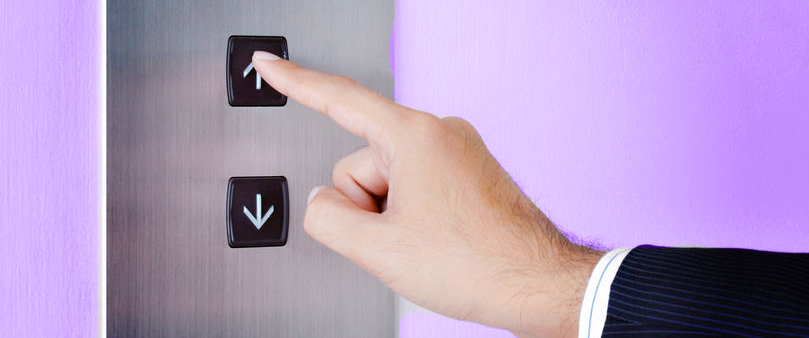
The space elevator
Never mind just going up to the twentieth floor – scientists are investigating the possibility of an elevator that can take people into space. A Japanese construction company called the Obayashi Corporation is aiming to do it by 2050; China is hoping to beat them to it. But they’ll need to overcome myriad obstacles – including, most problematically, the fact that we haven’t yet developed a material strong enough for the task.
Last year, scientists from the Faculty of Engineering at Shizuoka University in Japan made the first attempt to move an object along a cable in outer space. They announced they were launching two tiny satellites, each just ten centimetres across, into orbit. The satellites were tethered to each other by a cable just over ten metres long along which a motorised cube even smaller than the satellites would move.
Yet the idea of a space elevator has actually been around for more than a century. Russian scientist Konstantin Tsiolkovsky mooted the idea in 1895 after seeing the Eiffel Tower, and several engineers from different countries have investigated it since.
Theoretically, a space elevator would require a cable around 22,400 miles long, tethered taut between the Earth at one end and a vast counterweight at the other. Electromagnetic propulsion could be used to move the elevator along the cable, transporting astronauts, people and equipment up and into orbit.
Japanese national daily newspaper, The Mainichi, reported last year: “Should a space elevator ever actually be realised, people could travel to the International Space Station without using a launch vehicle. A variety of supplies – such as panels for solar power generation and materials for research and development – could also be transported to space.”
This would have several advantages over rockets, which are expensive, can usually only be used once, and occasionally explode. However, so far we haven’t discovered a material that could withstand the stress of gravity, and breezes in the upper atmosphere, without breaking. The cable would also need to be resistant to high-energy cosmic rays. Then there’s the question of how to get the structure into space, how to get electricity from Earth into space, finding a suitable counterweight, plus the pesky question of how an elevator would work in zero gravity. Not to mention the possibility of the whole thing being taken out by a meteorite or other debris.
Nonetheless, Yoji Ishikawa, a senior engineer at the Obayashi Corporation, was optimistic, telling The Mainichi: “In theory, a space elevator is highly plausible.” The corporation, which built the Tokyo Skytree tower, was involved with the Shizuoka University experiment and has drawn up a concept for a space elevator. Its six oval-shaped pods, each measuring 18 metres by seven metres and capable of holding 30 people, would depart from a platform on the sea and take around eight days to get into space, travelling at a speed of around 125mph – similar to some high-speed trains. The cost of the project, which would require nearly 60,000 miles of cable, would be around 10 trillion yen – around £6.9 billion.
You don’t have to be taking the lift into space to be eligible for government funding through the R and D tax credit scheme. Companies whose work involves scientific, technological or medical research can apply to the scheme, which gives you some of your tax back to help you cover your costs. At R&D Tax Solutions, we specialise in helping companies make successful claims. Have a look at our page on how to calculate R&D tax credits to find out more – and call us on 0161 298 1010 to see how we can help.





